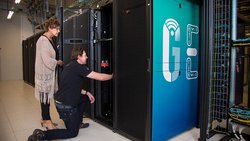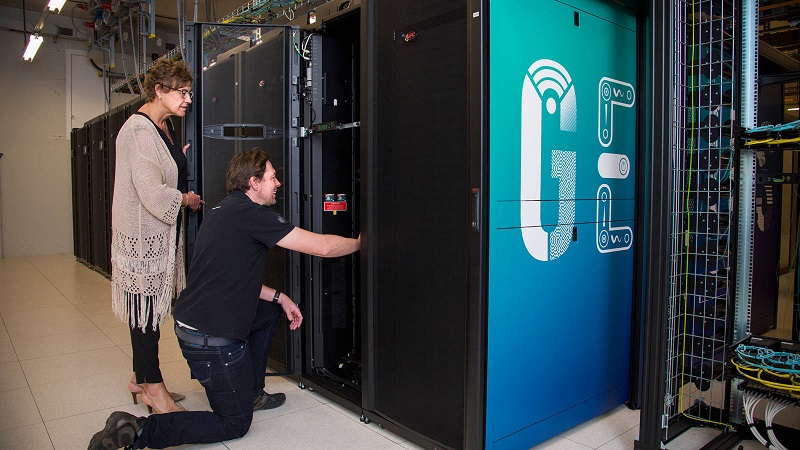
April 25, 2018
By: Michael Feldman
Research university KU Leuven has installed a new HPE supercomputer designed to run artificial intelligence workloads.
 The system will be deployed at the Flemish Supercomputing Center, aka the Vlaams Supercomputer Centrum (VSC), an HPC facility in northern Belgium that serves academic and commercial users. The new machine, called “Genius,” will be tasked to support a wide array of application areas, including molecular modeling, engineering, physics, chemistry, climate studies, astronomy/astrophysics, and psychology.
The system will be deployed at the Flemish Supercomputing Center, aka the Vlaams Supercomputer Centrum (VSC), an HPC facility in northern Belgium that serves academic and commercial users. The new machine, called “Genius,” will be tasked to support a wide array of application areas, including molecular modeling, engineering, physics, chemistry, climate studies, astronomy/astrophysics, and psychology.
According to Jan Ooghe, who heads the research facilities unit at KU Leuven, the new system will provide their users a state-of-the-art supercomputer for supporting artificial intelligence work and give the university a competitive edge in this area. “We see AI as a new powerful method in scientific research where HPC will play an important role, and this new system with its powerful GPU section will undoubtedly help our researchers to explore and take advantage of it,” said Ooghe.
Genius is a heterogeneous cluster composed of 96 servers nodes powered by Intel Xeon CPUs and 20 nodes outfitted with Xeons and NVIDIA Tesla P100 GPUs. The CPU-only nodes consist of Apollo k6000 and Gen10 servers, while the GPU-nodes are based on the Apollo sx40 platform. The sx40 pairs two Xeon CPUs with four NVLink-enabled GPUs, which HPE says can be used to support either deep learning work or more traditional HPC applications. In any case, the CPU-only HPE servers in Genius certainly seem geared for more typical HPC codes.
Genius provide 600 teraflops of peak performance, but that is almost certainly of the double precision (64 bits) variety, which reflects its capacity for simulation and modeling work. While that’s an impressive number of flops for a large university in a small country, it probably wouldn’t be enough to deliver a spot on the TOP500 list.
For AI applications though, the GPU nodes by themselves provide nearly 1.7 petaflops of teraflops in half precision (16 bits) – the kind commonly used for deep learning computations. That’s a good level of performance nowadays for an AI system, but if the timing had been better, KU Leuven could have outfitted Genius with the newer and much more powerful V100 GPUs. If it had done so, they would have a 10-petaflop AI machine today.
Nonetheless, Genius will be the most performant AI system in Belgium and one of the two most powerful supercomputers in the country – BrENIAC, also at VSC, being the other one. The new system will be available for researchers at KU Leuven and Hasselt University, as well as other VSC users from academia and industry.
